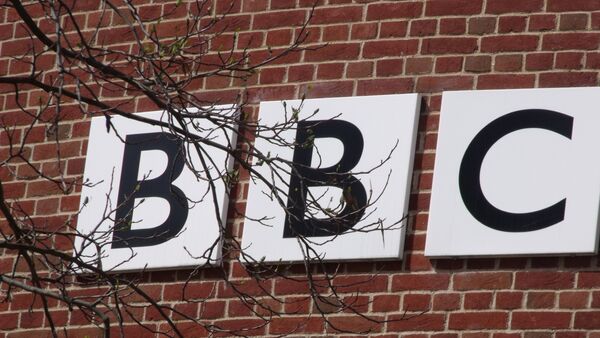New Delhi (Sputnik) — "Killing for Conservation" — a sociopolitical documentary hosted by Justin Rowlatt, published by the BBC and broadcasted as part of the BBC Our World Series has irked many in the establishment as well as wild life conservationists in India. India's Ministry for Environment and Forest has asked the BBC to pull out the documentary that aims to delve into the "dark secrets" of conservation of the one horned Rhino at India's Kaziranga National Park from all web platforms after it was first televised on the 11th of February.
Commenting on the issue, a BBC spokesperson said:
"This film makes clear the successes achieved by India’s conservation policies in preserving the country’s most iconic wildlife. However, the film also expressly set out to explore the challenges of India’s conservation drive and during production it became clear that one of those challenges was the impact on communities living next to the park. Our audiences expect us to bring them the full picture, while adhering to our editorial standards and this piece is no different. The issues raised in the film are part of an important international debate on the appropriate way to combat poaching. We did approach the relevant government authorities to make sure their position was fully reflected but they declined to take part."
Rowlatt and BBC's South Asia bureau have been asked to show cause within seven days as to why their filming permissions should not be revoked.
The Indian government has warned the broadcaster of cancelling all future permits if the program was not removed from various online portals immediately. The Indian High Commission in the UK has also been asked to take action.
In its notice, the NTCA claimed that the BBC requested permission to accompany forest guards on night patrol for filming "the most exciting aspect of conservation in India — the elite rangers of Kaziranga as they go on night patrol and show our viewers the efforts being taken to protect wildlife in India."
Instead, the notice said, "the producer has used spasmodic events as an umbrella to judge a gamut of conservation efforts that go into safeguarding our wildlife heritage, with scant understanding of the laws in place. The immunity provided to forest officials under Section 197 of the Code of Criminal Procedure has been construed as a ‘Shoot to Kill' policy."
These #BBC & other foreign media, NGO's come here with their agenda's. I feel if necessary, one thousand poachers be killed to save a Rhino https://t.co/DBEDd222ax
— Chai Wala™ (@YearOfMonk) February 15, 2017
#BREAKING NTCA asks Rowlatt & BBC’s South Asia Bureau to show cause within 7 days why their filming permissions shouldn't be revoked (5)
— NEWS LIVE (@NewsLiveGhy) February 15, 2017
National Tiger Conservation Authority faulted Rowlatt and the BBC for airing the programme last Saturday without submitting it to ministries
— Luit Neil Don (@luitneildon) February 15, 2017
"There were just a handful of Indian one-horned rhinoceros left when the park was set up a century ago in Assam, in India's far east. Now there are more than 2,400 — two-thirds of the entire world population…but the way the park protects the animals is controversial. Its rangers have been given the kind of powers to shoot and kill normally only conferred on armed forces policing civil unrest. Kaziranga's success is built on a hardline conservation approach that critics say has resulted in violence, forced evictions — and the deaths of 50 suspected poachers," reads an excerpt of the documentary's English narration published on BBC website.
The one horned Indian Rhino is an endangered species as it horn, sold as a miracle cure for everything from cancer to erectile dysfunction, can fetch very high prices in countries like Vietnam and China. The Kaziranga National Park, which hosts two thirds or roughly 2,400 of the world's great one-horn rhinoceroses, is a World Heritage Site and the most prestigious wildlife reserve of India.



